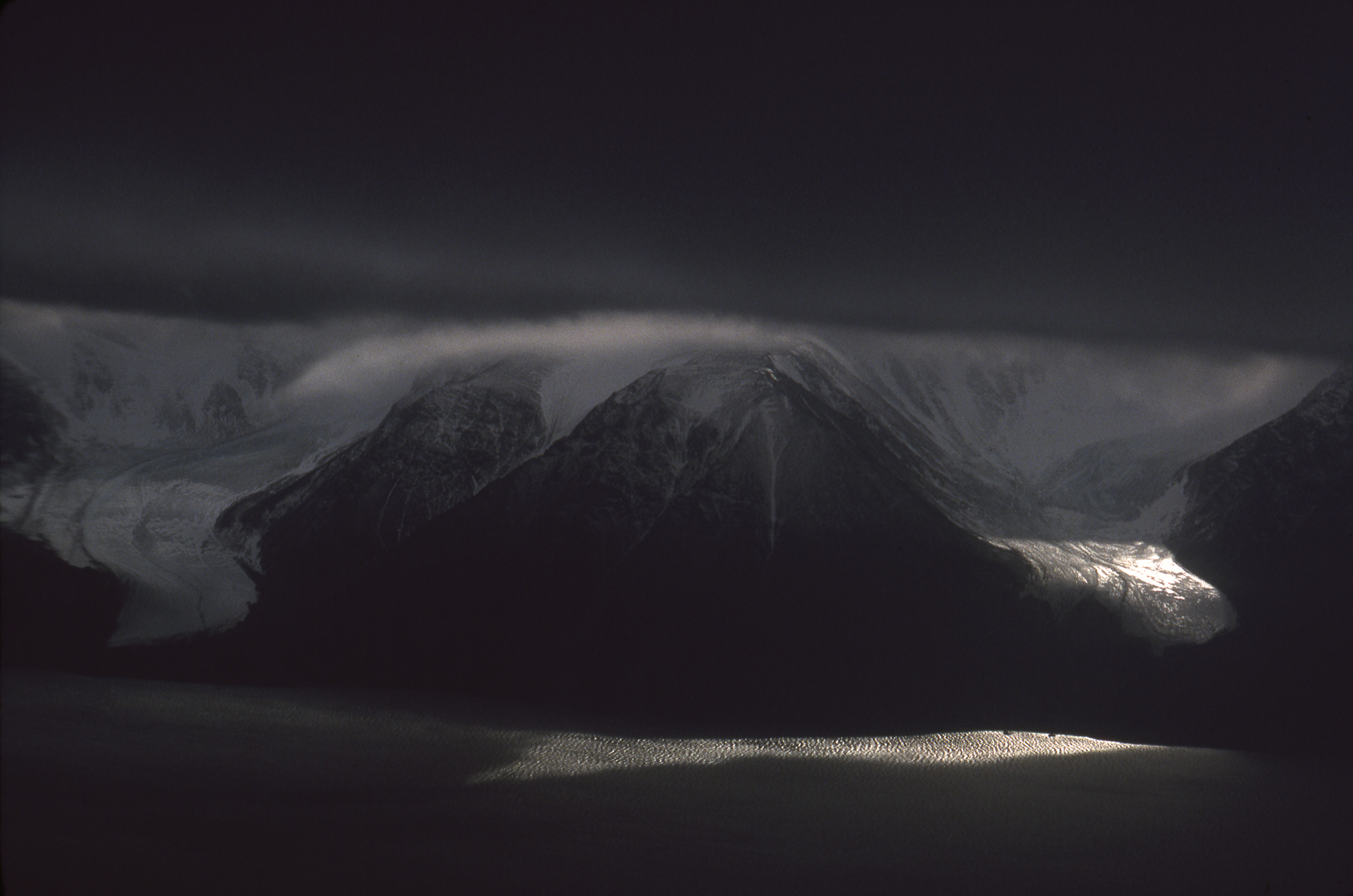
After a long night of fixing, re-fixing, and fixing again a breakdown on Andy Attagutalukutuk’s snowmobile, we arrived at this tiny hunting cabin, all snowed in. “We will sleep here tonight,” Andy says, as if there were any doubt. All this time I had assumed we would eventually build an igloo to sleep in, as we did 20 years ago when I travelled with Inuit hunters like Andy’s father Paulosie. I am cold, tired, and delighted to accept the end of intrigue for now. And when I look at our little cozy cabin here in this black, cold wind, it becomes staggeringly obvious why building an igloo makes no sense. Harry is here too, busy unpacking his qamuti. “I stayed here last winter. That window was broken by a polar bear,” Andy says, referring to a damaged and repaired window frame. What a remarkable place this is. Twenty years ago, there were no cabins like this. Around 9 p.m. we hear snowmobiles outside. The door soon swings open, cold rushes in, and out of the cloud come two fur-clad Inuit hunters. This time it is two brothers, whose father owns the taxi business in Igloolik. I watch them pull off their fur parkas, seal-skin pants, and layers of clothes: caribou socks, then wool duffle socks, then plastic bags inside those, and then a seal-skin boot inside the plastic. Andy and I make room for them on the sleeping platform. I introduce myself, but there is no response. “They are quite deaf,” Andy explains. “If you find an old man who isn’t deaf [from gunfire and snowmobile noise], it means he hasn’t been hunting much.” Andy himself is very deaf. North Baffin Island, Igloolik, 1999

















